 The Chancellor of the Exchequer, George Osborne announced his annual Budget to Parliament today, Wednesday 16th March 2016.
The Chancellor of the Exchequer, George Osborne announced his annual Budget to Parliament today, Wednesday 16th March 2016.
The Budget is the government's annual financial statement and review of levels of taxation. It also includes the government's future financial strategy and economic forecast.
Small businesses are already facing new responsibilities and pressures, including workplace pension schemes, the national living wage, dividend taxation changes and quarterly tax reporting. Thankfully today, Osborne did not impose too many changes for small businesses and if anything, this time there was more good news than bad.
A summary of the key changes that could affect your small business can be found below. To read a more detailed guide for small businesses, please click here
Loans to Directors and Shareholders.pdf)
If a close company loans money to any of its "participators" (directors and shareholders), a tax charge called S455 arises. S455 is designed to deter participators from taking loans from their companies; rather than a salary or dividends.
The rate of S455 on loans made on or after 6th April 2016 will increase from 25% to 32.5%.
Fuel Duty
Despite being hotly tipped to increase; the government has again decided to freeze fuel duty. Fuel duty has been frozen since 2011. This will be welcome news for mobile businesses.
Corporation Tax
As already announced, from April 2017 the rate of corporation tax will fall to 19%. It has today been announced that there will be a further fall to 17% from 2020 for all companies of any size.
It is expected Northern Ireland will have the ability to set its own corporation tax rate from April 2018 under current plans.
Abolition of Class 2 National Insurance contributions (NICs)
The government announced its intention to abolish Class 2 NICs in the next Parliament and to reform Class 4 NICs to introduce a new benefit test.
Class 2 NICs is £2.80 per week for 2016/17, so the self-employed could benefit by a saving of nearly £150 per year.
Personal allowance and the Basic rate band
Under current plans, the personal allowance and basic rate band will be as follows in future tax years:
|
Tax year |
Personal Allowance |
Basic rate band |
Higher rate threshold |
|
2015/16 |
10,600 |
31,785 |
42,385 |
|
2016/17 |
11,000 |
32,000 |
43,000 |
|
2017/18 |
11,500 |
33,500 |
45,000 |
The personal allowance is the amount of income you don't have to pay tax on.
VAT Registration and Deregistration Thresholds
Businesses are obliged to register for VAT once their taxable turnover for any twelve-month period exceeds the VAT registration threshold. They may opt to deregister if the turnover falls below the deregistration threshold.
|
|
From April 2016 |
From April 2015 |
|
VAT registration threshold |
£83,000 |
£82,000 |
|
VAT deregistration threshold |
£81,000 |
£80,000 |
Capital Gains Tax
The main rate of capital gains tax has been reduced from 28% to 20% and the basic rate is down to 10% from 18% with effect from 6th April 2016. Unfortunately, gains on residential property will remain at 28% and 18%. The annual exemption will remain at £11,100 for 2016/17.
Gains on investments in newly issued shares in unlisted, trading companies purchased on or after 17th March 2016 will pay 10% capital gains tax. The shares must be held for at least 3 years from 6th April 2016 and will subject to a lifetime limit of £10 million of gains. This tax break is designed to encourage investment in the smaller, unlisted companies.
Stamp Duty - England, Wales and Northern Ireland
From 17th March 2016 Stamp Duty Land Tax (SDLT) charged on purchases of commercial properties and transactions involving a mixture of residential and commercial properties will be charged at each rate on the portion of the purchase price which falls within each rate band. The new rates and thresholds for freehold purchases and lease premiums are:
| £0 - £150,000 | 0% |
| £150,001 - £250,000 | 2% |
| £250,001 + | 5% |
These changes will bring down the cost of buying business premises, with the government estimating up to 90% of commercial transactions will pay the same or less SDLT moving forward.
For new leasehold transactions, SDLT is already charged at each rate on the portion of the net present value (NPV) of the rent which falls within each band.
| £0 - £150,000 | 0% |
| £150,001 - £5,000,000 | 1% |
| £5,000,001 + | 2% |
Business rates – England only
The government will raise the Small Business Rate Relief threshold in England to rateable values of up to £12,000 tapering to £15,000 from 1 April 2017. Currently, 100% relief is only available if the business premises has a rateable value of under £6,000.
The government have also announced plans to introduce more frequent (at least once every 3 years) revaluations of properties in England for business rates purposes and will publish a discussion paper in March 2016 outlining options to deliver this. Rateable values have not been reviewed for some time and have become out of date with the economic climate, so it is welcome news that this issue should finally be addressed.
Wales, Scotland and Northern Ireland have local regimes for business rates.
Join us in three easy steps

Get in touch
Arrange a free consultation in person or via video with your local accountant. It’s an informal chat to get to know you and find out more about the help you are looking for.

Chat to an expert
We clearly explain the support available to you and are happy to act as business advisors in order to help you grow your business.

Get a fixed quote
Our fees are fixed and tailored specifically to each individual's needs, so that you only pay for the level of support and services that you require.
Choose the right accounting firm for you
Running your own business can be challenging so why not let TaxAssist Accountants manage your tax, accounting, bookkeeping and payroll needs? If you are not receiving the service you deserve from your accountant, then perhaps it’s time to make the switch?

Local business focus
We specialise in supporting independent businesses and work with 100,000 clients. Each TaxAssist Accountant runs their own business, and are passionate about supporting you.

Come and meet us
We enjoy talking to business owners and self-employed professionals who are looking to get the most out of their accountant. You can visit us at any of our 409 locations, meet with us online through video call software, or talk to us by telephone.

Switching is simple
Changing accountants is easier than you might think. There are no tax implications and you can switch at any time in the year and our team will guide you through the process for a smooth transition.
